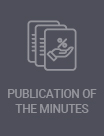Effects of Reserve Requirements in an Inflation Targeting Regime: The Case of Colombia
La serie Borradores de Economía es una publicación de la Subgerencia de Estudios Económicos del Banco de la República. Los trabajos son de carácter provisional, las opiniones y posibles errores son responsabilidad exclusiva del autor y sus contenidos no comprometen al Banco de la República ni a su Junta Directiva.
The Colombian economy and financial system have coped reasonably well with the effects of the global financial crisis. Hence, unconventional policy measures have not been at the center of the policy decisions and discussions. Nominal short term interest rates have remained the main monetary policy tool and Quantitative easing measures have not been central in the policy response. The one unconventional monetary instrument used by the Central Bank in Colombia has been changes in reserve requirements (RR) on financial system deposits. Interestingly, they were adopted before the global financial crisis, as a reaction to domestic credit conditions. The effects of RR on interest rate and interest rate pass-through in an inflation targeting regime are not as straightforward as those under a monetary targeting regime. Conceptually, those effects depend on the degree of substitution between deposits and central bank credit as sources of funds for banks and on the extent to which RR changes affect the risks facing banks. The empirical results for Colombia suggest that RR are important long run determinants of business loan interest rates and have been effective in strengthening the pass-through from policy to deposit and lending interest rates. Keywords: Reserve Requirements, Inflation Targeting, Interest rate pass-through.
The opinions expressed in this paper are those of the authors and do not represent the views of the Banco de la República or of its Board of Directors.




















































